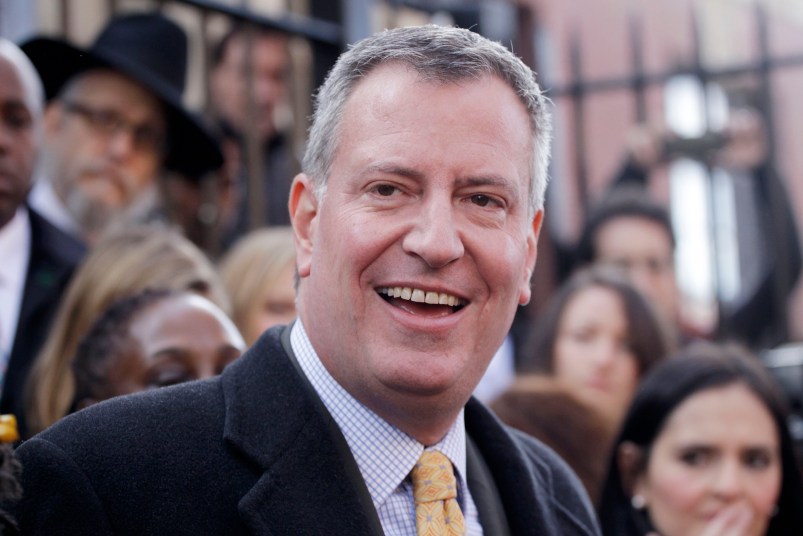Bill de Blasio easily defeated his Republican opponent, Joe Lhota, in Tuesday’s New York City mayoral election, and was set to become the city’s first Democratic mayor since 1993.
Final results were not available, but the New York Times and CNN called it for de Blasio shortly after the polls closed. A large crowd of supporters was awaiting remarks from de Blasio at his election night party in Brooklyn. Lhota was also due to take the stage at a Manhattan hotel.
De Blasio never had less than a 40-point lead in polls conducted in the two months since he and Lhota emerged from the Sept. 10 primaries. With his historic lead in the general election, it was easy to forget what an upset de Blasio’s victory really was. Just a few short months ago, the notion of a Mayor de Blasio seemed almost far-fetched.
For more than two years, de Blasio polled behind a rotating cast of Democratic frontrunners, including City Council Speaker Christine Quinn and former Rep. Anthony Weiner. After the latter’s spectacular, scandalous implosion, de Blasio began to surge in mid-August with the help of a wildly successful television ad campaign. He never looked back. In September’s primary, de Blasio earned 40.3 percent of the vote, enough to help him narrowly avoid a runoff against the second-place finisher, New York City Comptroller Bill Thompson.
His wide lead in the general came in spite of Lhota’s efforts to scare voters away from the Democrat by highlighting de Blasio’s youthful support for Nicaraguan leftists and with a commercial that used dramatic footage of biker gangs to warn a de Blasio victory would lead to a crime wave.
De Blasio’s victory was powered by his branding as the only “true progressive.” That included a promise to fight income inequality and turn the page on what he dubbed New York’s “Tale of Two Cities.” He also vowed to “end the stop-and-frisk era” of Police Commissioner Ray Kelly. De Blasio’s upset was also aided by his family, with his wife, Chirlane, and two children, Dante and Chiara, starring in his ads, multiple campaign mailers, and joining him on the campaign trail.
His populist promises have led to a growing sense that de Blasio could be the vanguard in a leftward shift for the Democratic party. As the mayor of the nation’s largest city, a successful de Blasio administration could spark a larger progressive movement.
He is scheduled to be sworn in on Jan. 1.






